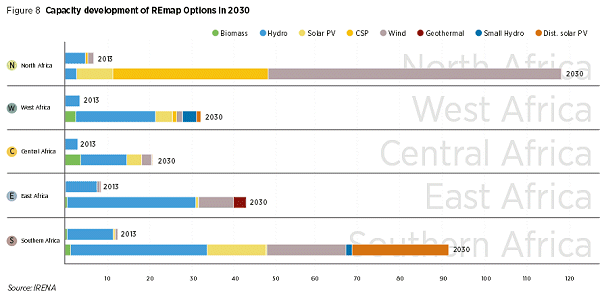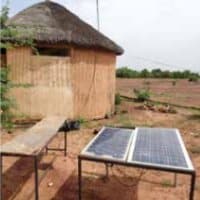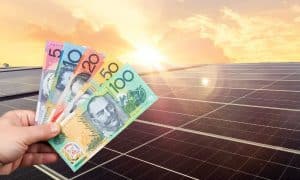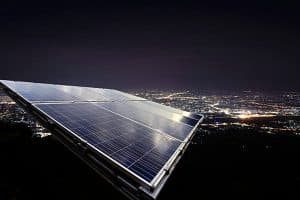Africa could generate 22% of all its energy requirements through home-grown renewables by 2030 says the International Renewable Energy Agency (IRENA).
IRENA’s latest report, Africa 2030 : Roadmap For A Renewable Energy Future, provides a detail on how the continent could achieve this target; up from just 5% renewables in 2013.
“Africa holds some of the best renewable energy resources in the world in the form of biomass, geothermal, hydropower, solar and wind,” said IRENA Director-General Adnan Z. Amin.
“This, combined with the precipitous drop of renewable energy technology costs, creates a massive opportunity for African countries to both transform and expand their energy systems while providing a pathway for low-carbon economic growth.”
The share of renewables in Africa’s power generation mix could grow to as high as 50% by 2030 if all the REmap Options in the report are implemented says IRENA. Hydropower and wind could each reach around 100 gigawatts (GW) capacity, followed by solar at approximately 70 GW.

Africa’s solar PV capacity has grown incredibly in the past few years, starting from a low base. According to the report, cumulative installed capacity at the end of 2014 was 1,334 megawatts (MW), more than ten times the amount installed by the end of 2009; which was just 127 MW.
Like Australia, Africa is blessed with significant solar resources and home solar power systems are rapidly gaining popularity.
Kenya and Tanzania have an estimated 4 MW and 6-8 MW of house solar panels installed in residential scenarios respectively. While this might not sound like a great deal compared to Australia’s 4.4GW+, solar power systems in these countries are often as little as 20 watts capacity.
These micro-systems provide power for very basic lighting and applications such as cell phone recharging. As small as they are, the impact of these systems is massive; changing lives in a positive way and generating clean electricity in many areas previously without access to power.
The IRENA report looks at a wide range of technologies suitable for use in Africa; including hydro, wind, solar, geothermal, wood fuel and other biomass – both on a small and large scale.
“The technologies are available, reliable and increasingly cost-competitive. The onus is now on Africa’s governments to create conditions to accelerate deployment, paving the way for Africa’s unfettered, sustainable development,” said Mr. Amin.
The full Africa 2030 : Roadmap For A Renewable Future report can be viewed here (PDF). The report is part of IRENA’s global REmap 2030 analysis.
The International Renewable Energy Agency (IRENA) is a global hub for renewable energy cooperation and information exchange by 143 member states and nations, including Australia.







































